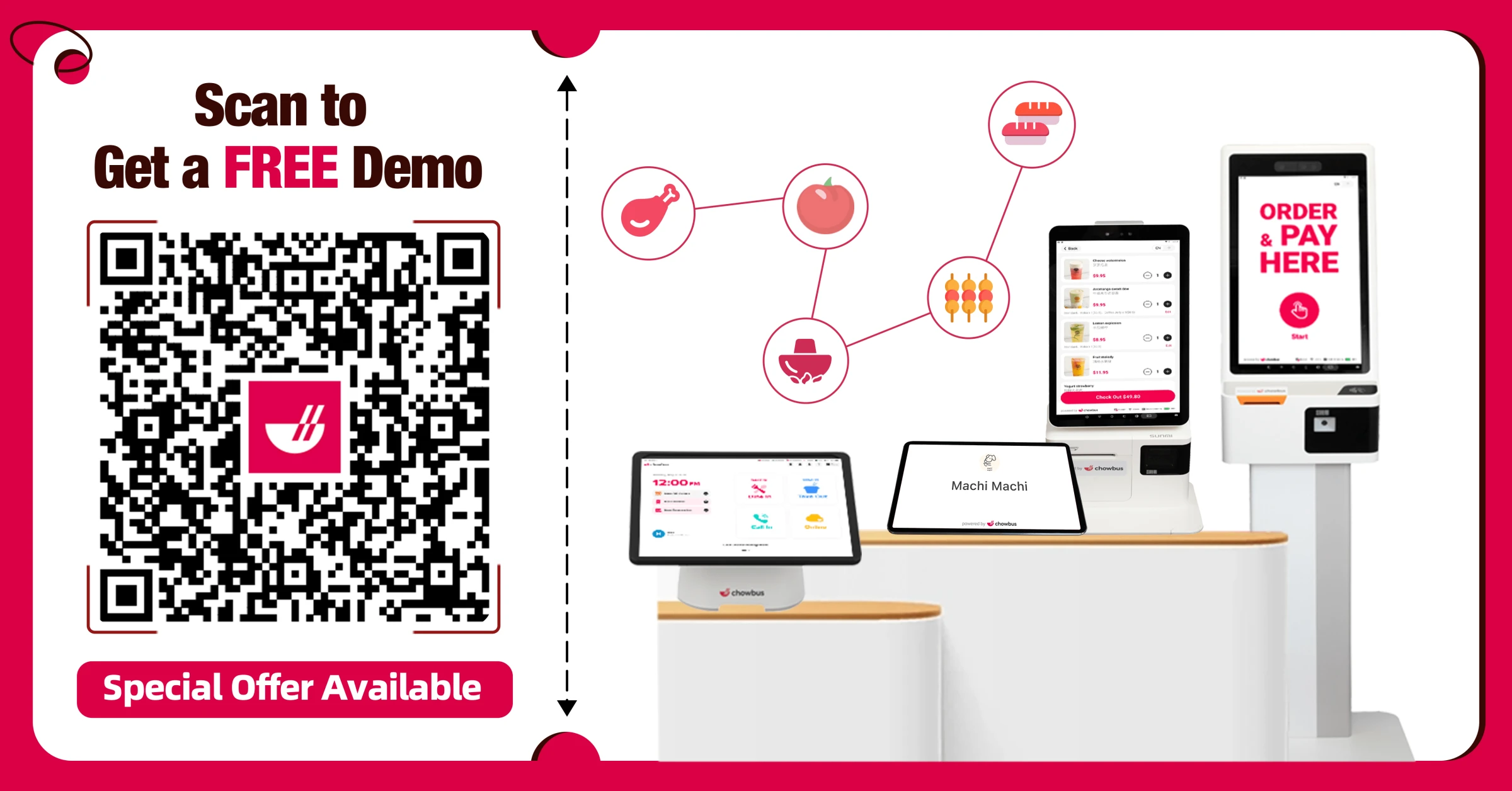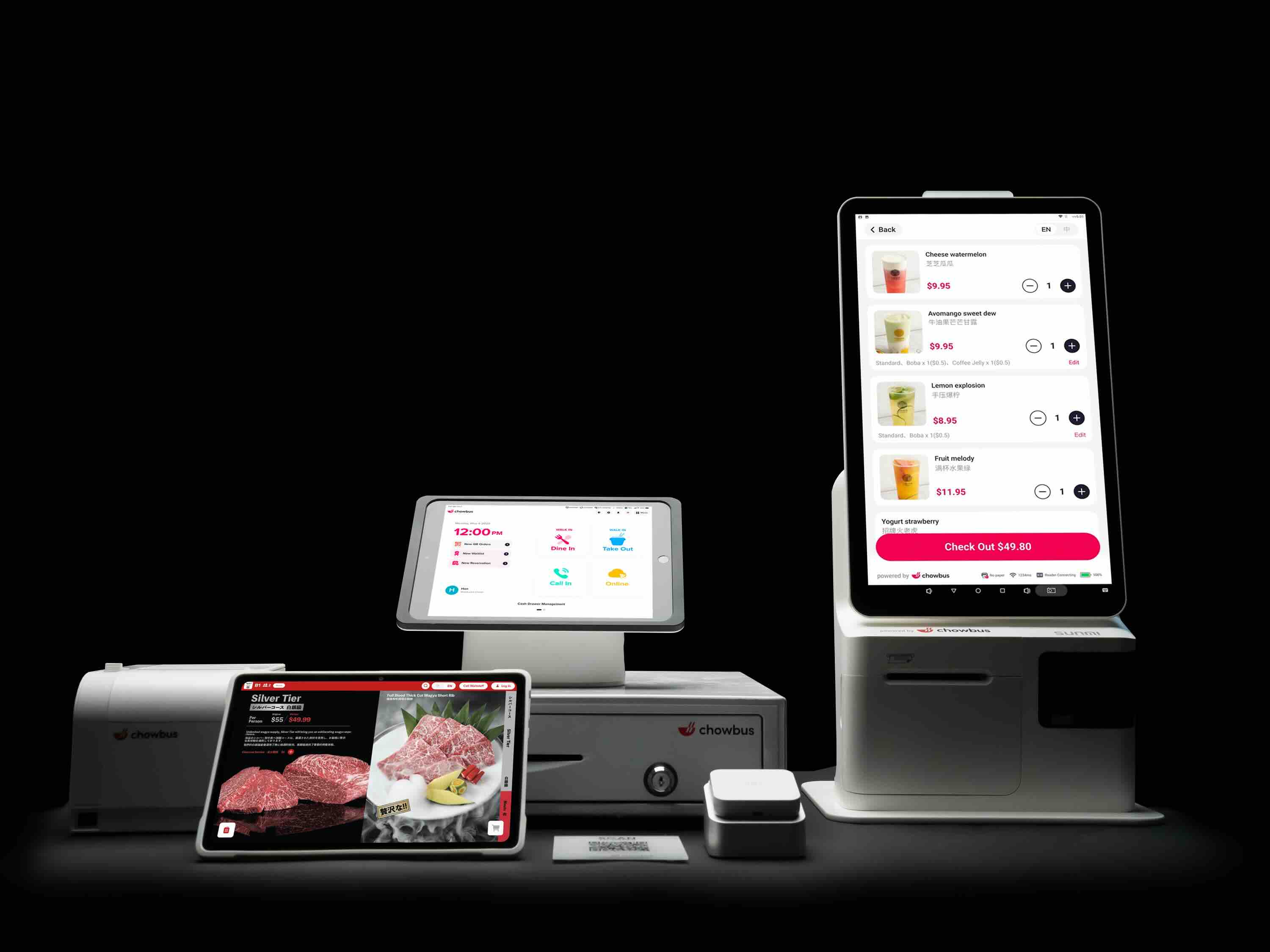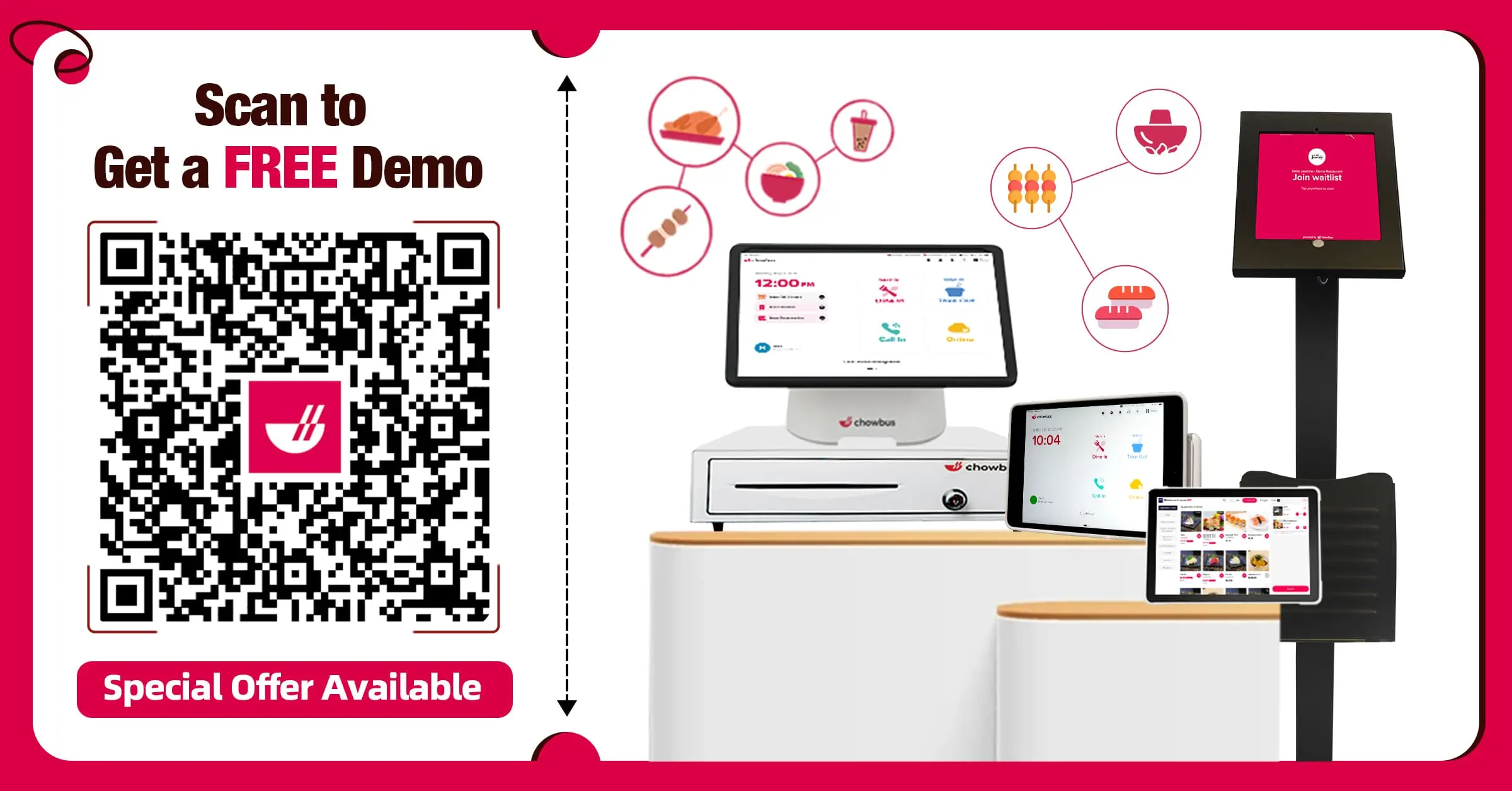Enterprise POS: Best Enterprise Restaurant POS System

Enterprise POS systems are transforming how restaurants manage their operations, offering a comprehensive and tailor-made solution designed to meet the unique challenges multi-location establishments face. Whether you own a restaurant chain or are planning to expand, understanding the power of enterprise POS software is crucial.
In this blog post, we will explore enterprise POS systems in detail, covering their key features, benefits, potential drawbacks, and how to choose the best one for your enterprise-level restaurant business.
But first, let’s start with the basics. What is an Enterprise POS system, and why is it a significant advancement for restaurant owners and managers?

What is Enterprise POS?
An Enterprise POS (Point of Sale) system for restaurants is a sophisticated software platform that simplifies the management of various restaurant outlets through a centralized interface. This technology is incredibly beneficial for restaurant chains or establishments with several branches. Unlike traditional POS systems, enterprise POS software offers a more holistic approach, enabling seamless coordination and management of operations across different locations.
Key Features of Enterprise POS System
The effectiveness of an enterprise POS for restaurants lies in its features. These systems are tailored to meet the unique challenges of managing extensive restaurant operations. Let's explore the key features that set these systems apart.
Centralized Multi-Location Management
Enterprise POS systems excel in managing multiple restaurant locations seamlessly. With features like Multi-Location Transaction and Loyalty Systems, these platforms enable unified management of sales, promotions, and customer loyalty programs across all outlets. This centralization ensures consistency and efficiency, which is crucial for brand integrity and operational harmony.
Inventory Tracking Across Different Outlets
Effective inventory management is vital for any restaurant, especially those with multiple outlets. Enterprise POS software provides real-time inventory tracking across all locations. This feature ensures optimal stock levels, reduces waste, and aids in making informed purchasing decisions.
Real-time Data Synchronization
In the fast-paced world of restaurant management, real-time data synchronization is invaluable. Enterprise POS systems offer live sales, inventory, and customer data updates. This immediacy allows for swift decision-making and keeps all stakeholders informed with up-to-the-minute information.
Centralized Reporting & Analytics
One of the best enterprise restaurant POS features is centralized reporting and analytics. These systems collate data from all locations, providing comprehensive reports and insights. This centralized approach to data analysis helps identify trends, make strategic decisions, and optimize overall business performance.
Integrated Customer Relationship Management (CRM) Systems
CRM integration in enterprise POS for restaurants enhances customer engagement and satisfaction. By tracking customer preferences, purchase history, and feedback, these systems enable personalized marketing and improved customer service.
Mobile Compatibility
Mobility is key in today's dynamic business environment. The best enterprise restaurant POS systems offer mobile compatibility, allowing managers and staff to access the system from anywhere, facilitating better control and flexibility in operations.
Offline Mode
The reliability of an Enterprise POS system is exemplified by its offline mode. This feature ensures uninterrupted operations even during internet outages, a critical aspect for continuous business flow.
Cloud-Based
Cloud-based Enterprise POS Solutions represent the future of restaurant management technology. They offer scalability, security, and accessibility, making them an ideal choice for growing enterprise-level restaurant businesses.
Benefits of Using an Enterprise POS System in Multi-Location Restaurants
The adoption of an enterprise restaurant POS system brings a myriad of benefits to the table. Let's explore these advantages, shedding light on how they can transform your restaurant business.
1. Streamline Operations Across Locations:
Enterprise POS systems, particularly those with multi-store POS capabilities, are adept at streamlining restaurant operations by centralizing essential functions. This means that whether you're managing one restaurant or a dozen, you can effortlessly oversee order processing, payments, and more from a single, unified interface.
2. Improve Efficiency:
Efficiency is paramount in the restaurant industry. With an Enterprise POS system, you can optimize workflows, reduce wait times, and ensure a smooth dining experience for your customers across all your establishments.
3. Cost Savings:
Running multiple restaurant locations can be expensive, but Enterprise POS systems can help control costs. They enable you to manage inventory better, reduce wastage, and optimize staff schedules, ultimately leading to significant cost savings.
4. Improved Customer Experience:
Happy customers are repeat customers. With features like quick order processing and personalized service, Enterprise POS systems contribute to an improved dining experience, encouraging customers to return.
5. Provide Valuable Insights:
Data is a goldmine for any business. Enterprise POS systems provide detailed insights into your operations, helping you make informed decisions. You can track sales trends, customer preferences, and inventory turnover to refine your strategies.
6. Unification:
Standardize your branding and offerings across all your restaurant locations with ease. Enterprise POS systems ensure consistency in menus, pricing, and promotional campaigns.
7. Enterprise-Wide Inventory Management and Customer Data Tracking:
With an Enterprise POS system, you can efficiently manage inventory levels across all locations, ensuring you never run out of essential ingredients. Additionally, you can track customer data and preferences, enabling targeted marketing and loyalty programs.
8. Easier Staff Experiences:
Empower your staff with user-friendly interfaces and efficient tools. Enterprise POS systems simplify tasks, making it easier for associates to focus on providing excellent service to your customers.
Potential Drawbacks of Modern Enterprise POS Software
While enterprise POS systems signal a significant shift in operational efficiency, it's important to recognize and prepare for potential challenges that may arise during their implementation and use.
1. Initial Costs
The adoption of an enterprise POS system can represent a significant initial investment. This includes not just the cost of the software itself but also associated hardware and training expenses. However, this should be viewed as a strategic investment rather than a mere expense. In the long run, the efficiencies and insights gained from an enterprise POS for restaurants can lead to substantial cost savings, making it a worthwhile investment for the future.
2. Learning Curve
Any new system introduces a learning curve, and enterprise POS software is no exception. Staff may need time to familiarize themselves with the new system, which can temporarily affect service efficiency. To mitigate this, comprehensive training sessions and continuous support are crucial. An effective training program can dramatically shorten the learning curve and help staff harness the full potential of the best enterprise restaurant POS systems.
3. Technical Issues
Enterprise POS systems can experience technical glitches or downtime like any technological tool. To ensure these do not significantly disrupt restaurant operations, having a reliable and responsive technical support team is vital. This team should be capable of promptly addressing and resolving any issues, thereby minimizing any negative impact on the restaurant’s operations.
4. Integration Challenges
Integrating existing systems is often a major concern when implementing a new enterprise POS. Restaurants must ensure that their chosen Point of Sale System for Enterprise restaurants can seamlessly integrate with existing software and hardware. This integration is crucial for maintaining data consistency and operational harmony. Choosing a system known for its compatibility and flexible integration options can greatly simplify this process.
Choosing the Best Enterprise POS System for Restaurants
Now that you understand the key features and benefits of Enterprise POS systems, it's time to explore how to choose the right system for your restaurant. Here are some essential considerations:
Compatibility with Your Business
Every restaurant is unique, and your POS system should be tailored to your specific needs. Consider factors such as your menu complexity, the number of locations, and the volume of transactions. Look for a system that seamlessly integrates with your existing technology stack and adapts to your restaurant’s requirements.
Scalability
Your restaurant may start with one location, but if you have expansion plans, choosing a system that can grow with your business is crucial. Ensure that your Enterprise POS system can accommodate multiple locations and provide centralized control and reporting.
User-Friendly Interface
Ease of use is essential for both staff and management. Look for a POS system with an intuitive interface that minimizes training time and reduces the likelihood of errors. A user-friendly system ensures that your staff can efficiently navigate the system, resulting in smoother operations and enhanced customer experiences.
Customer Support and Training
When choosing an Enterprise POS system, consider the level of customer support and training the vendor provides. A responsive support team and comprehensive training materials can make transitioning to a new system much smoother. Ensure the vendor offers ongoing support and updates to keep your POS system running smoothly.
Integration Capabilities
Your POS system should be able to integrate seamlessly with other tools and software your restaurant uses, such as accounting software, online ordering platforms, and reservation systems. Integration ensures that data flows effortlessly between systems, reducing manual data entry and potential errors.
Data Security and Compliance
Data security is paramount, especially when dealing with customer payment information. Choose a POS system that complies with industry standards and regulations, such as PCI DSS (Payment Card Industry Data Security Standard). Ensure the system encrypts sensitive data and provides robust security features to protect against data breaches.
Cost Considerations
While the benefits of an Enterprise POS system are significant, it's important to consider the cost. Evaluate the total cost of ownership, including hardware, software licensing, and ongoing support fees. Compare pricing structures from different vendors to find the best fit for your budget.
In your search for the best Enterprise POS system for your restaurant, consider Chowbus POS software. Chowbus offers a comprehensive solution designed specifically for the restaurant industry, with features catering to multi-location enterprises’ unique needs. With Chowbus POS, you can streamline operations, enhance customer experiences, and drive profitability.
Ready to explore the possibilities of an Enterprise POS system for your restaurant? Contact Chowbus POS today to schedule a demo and discover how our tailored solutions can revolutionize your operations, enhance customer satisfaction, and drive growth. Take the first step towards restaurant success with Chowbus POS.

Frequently Asked Questions About Enterprise POS
Explore our Frequently Asked Questions to gain insights on Enterprise POS systems, their role in business applications, and how they differ from other enterprise solutions.
Is POS an Enterprise Application?
POS (Point of Sale) can be considered an enterprise application. It is a system that businesses use to manage sales transactions, inventory, and customer data. As an integral part of business operations, especially in retail, POS systems often integrate with other enterprise resource planning (ERP) tools to streamline processes and provide comprehensive business insights. This integration makes POS a key component of the broader enterprise application ecosystem.
What is Enterprise Application and Example?
Enterprise applications are large-scale software solutions designed to operate in a corporate environment like a business or government organization. They are complex, scalable, and component-based, built to integrate with other enterprise applications and tools. These applications are used to address the needs of an organization rather than individual users.
Examples include Customer Relationship Management (CRM) systems, Enterprise Resource Planning (ERP) systems, and Supply Chain Management (SCM) software. These tools help streamline various business processes, improve efficiency, and enhance the overall performance of an organization.
What is an Enterprise Platform?
An enterprise platform is a comprehensive software solution designed to support and streamline large organizations’ complex operations and processes. It integrates various business functions like finance, inventory management, customer relationship management (CRM), and supply chain operations into a single, cohesive system.
This platform enables businesses to manage resources more efficiently, improve decision-making through data analytics, and enhance overall operational effectiveness. By consolidating multiple functions into one system, it reduces the need for separate software tools, leading to better coordination and communication across different departments.
What is the Difference Between POS and ERP?
The difference between POS (Point of Sale) and ERP (Enterprise Resource Planning) systems lies in their scope and functionality. POS systems are designed to manage sales transactions and customer interactions at the point of sale. They handle tasks like processing orders, payments, and providing receipts.
On the other hand, ERP systems offer a broader range of business management functionalities, integrating various processes like inventory management, accounting, human resources, and supply chain operations into a single, cohesive system. While POS focuses on the immediate sales aspect, ERP provides a comprehensive overview and control of the entire business operations.

Recommended Articles: